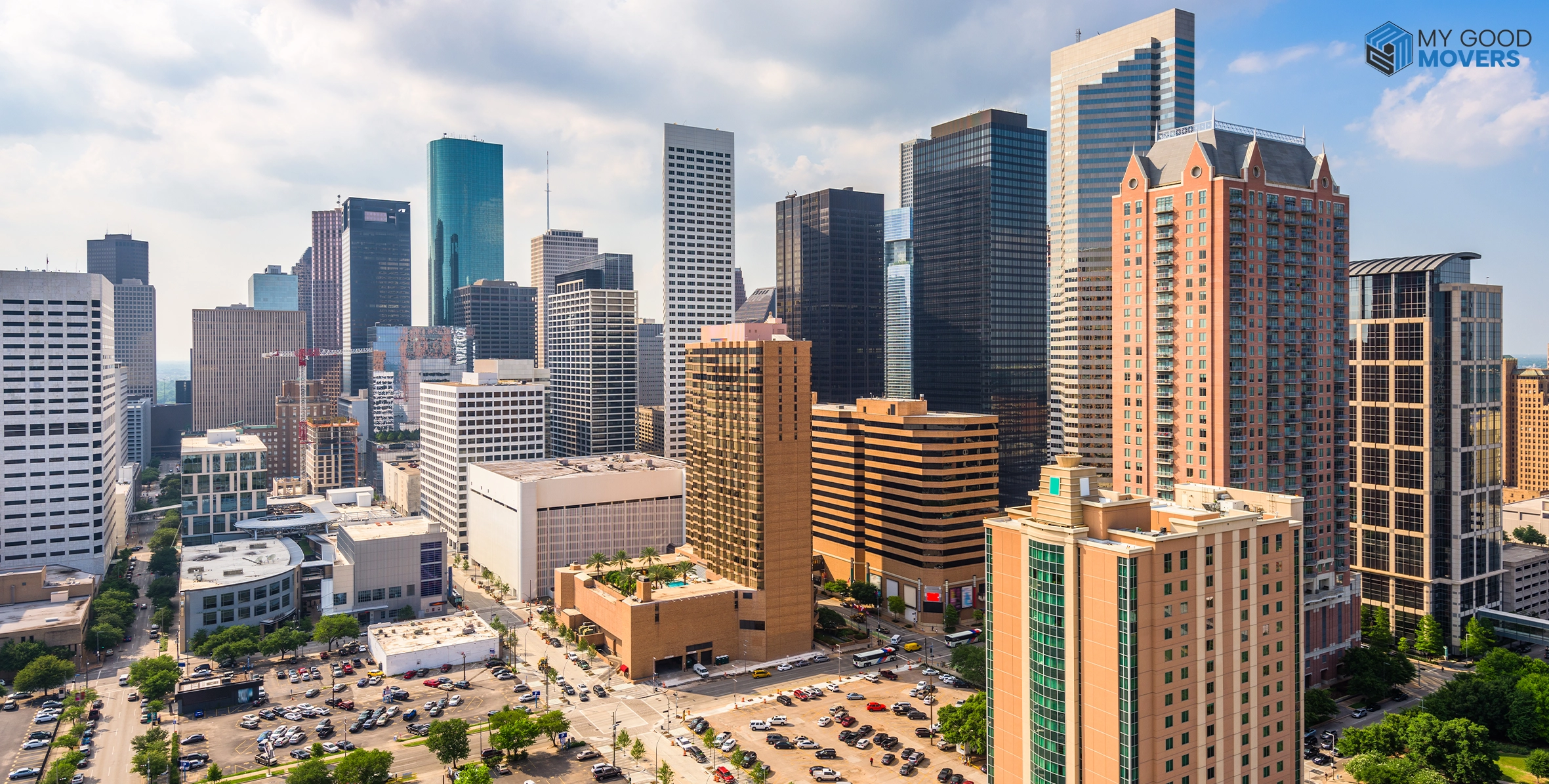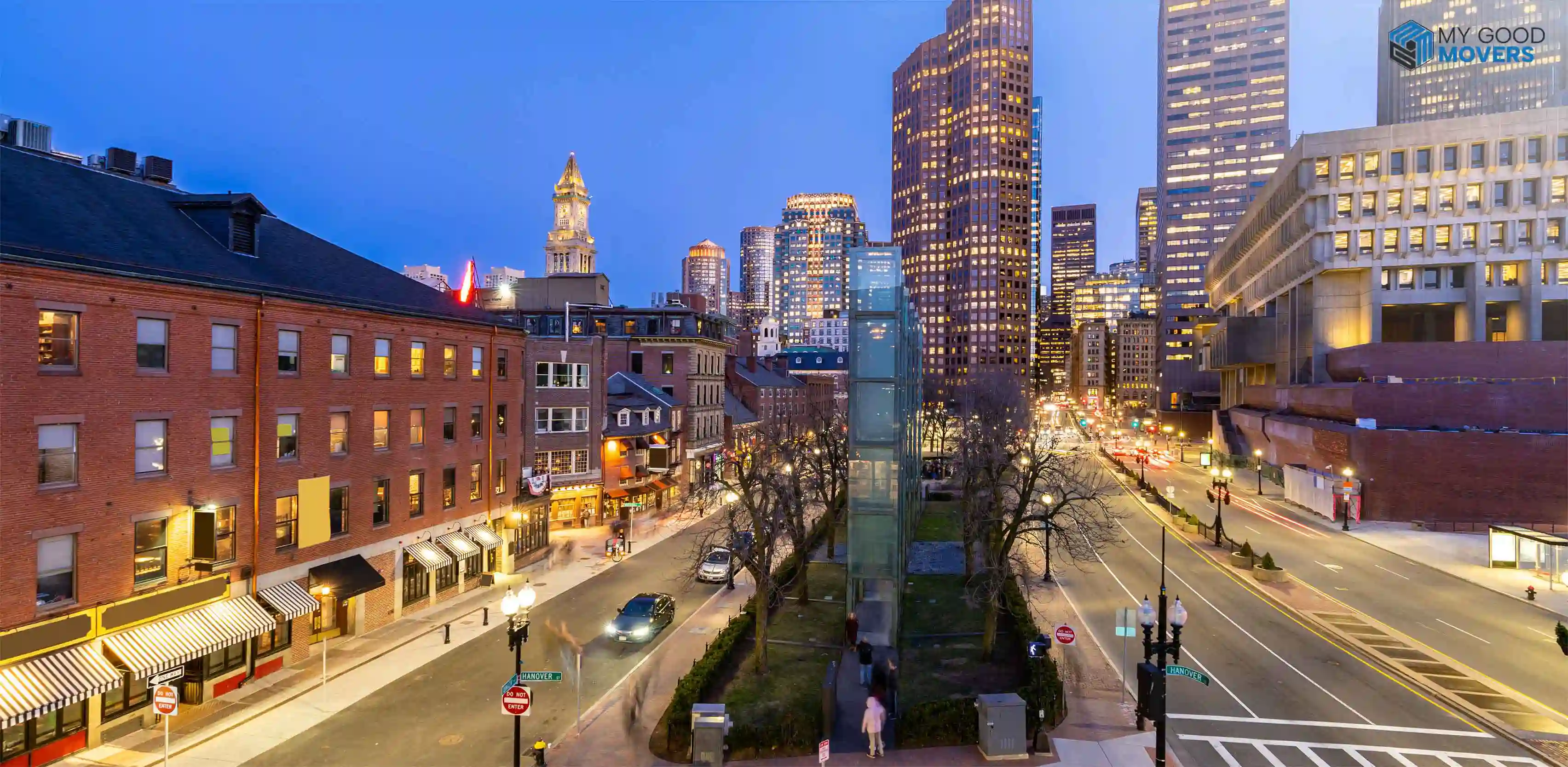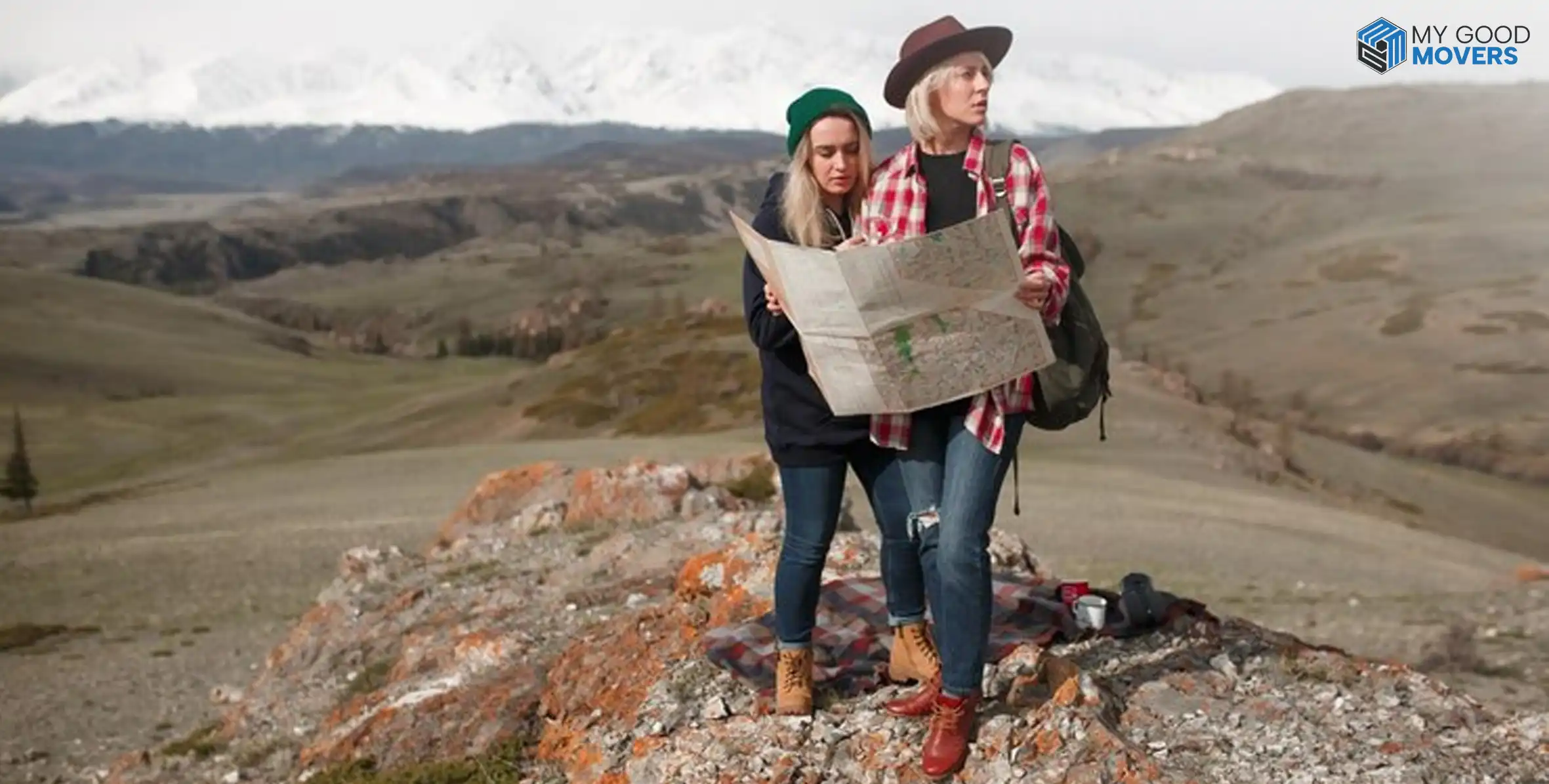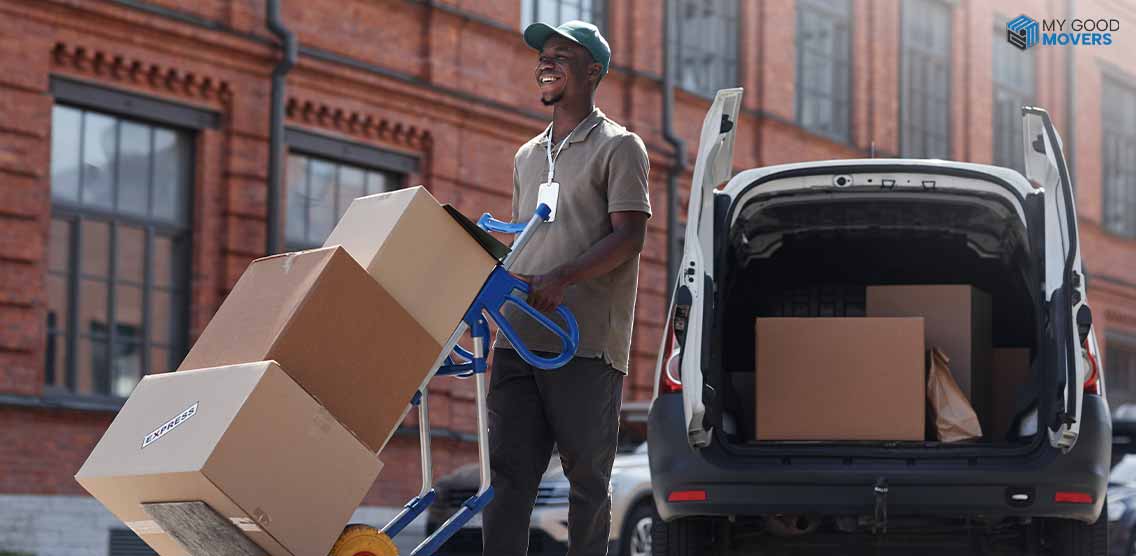Let’s just say moving to a new city alone in your 20s is exciting, nerve-wracking, and, honestly, a little overwhelming. But you are not alone in feeling that way. The U.S. Census Bureau found that around 15% of young adults between 20 and 29 move to a new city each year, and many of them do it solo.
It’s a major life decision, but it’s also an opportunity to hit the reset button, challenge yourself, and maybe even discover a new version of “you” in the process.
Let's break it down step by step because if you are relocating solo in your 20s, you need to have a plan—not just for the logistics but also for the emotional and mental shifts that come with it.
Why Moving Alone in Your 20s Feels Like a Rite of Passage
Here’s the thing: Moving to a new place, especially alone, is kind of like this unofficial rite of passage into adulthood. Whether you are starting your first job, chasing a dream, or just craving a fresh start, moving alone as a young adult symbolizes independence, growth, and, sometimes, a little rebellion against the comfort zone you have known for so long.
In your 20s, you are figuring out who you are—and that doesn’t always happen in the same town where you grew up or went to college. You crave change, new environments, and new faces.
And here’s some good news: 54% of young adults who relocate report that they feel more fulfilled and satisfied after making the move. It’s about shaking up the routine and saying, "I’m doing this for me."
Emotional Rollercoaster of Starting Fresh in a New City Alone
Let’s be real for a second: while starting fresh in a new city sounds dreamy, it's not all sunshine and rainbows. There will be highs and lows, especially at the beginning. You'll miss your old friends, your favourite coffee shop, and even those streets you've walked down a million times. It's natural.
In fact, research shows that 68% of people who move to a new city experience some form of homesickness within the first six months.
But homesickness doesn’t last forever. It’s like ripping off a Band-Aid. At first, it stings, but eventually, you get used to the new rhythm of life. And that’s when the adventure truly begins.
Practical Tips for Moving to a New City Alone in Your 20s
Let’s get practical because moving isn’t just emotional; it’s also a logistical beast. If you are moving to a new city single, there’s a ton to keep in mind.
A) Housing
First things first: where are you going to live? If you don't have family or friends in the city, you are on your own here. But that's not a bad thing—it means you get to create a space that's yours.
- Budgeting: In the U.S., the rule of thumb is that your rent should be around 30% of your income. In some cities, especially on the coasts, that might seem impossible (we’re looking at you, New York and San Francisco). Still, aim for the 30% range and be mindful of your budget. The last thing you want is to feel financially stressed in a brand-new city.
- Roommates vs. Living Alone: Do you want to find a roommate to split the rent, or are you committed to living alone in a new city? Roommates can ease the financial burden, but living alone offers freedom, peace, and total independence. It’s really about what you value most.
| City | Average Rent for 1 Bedroom (2024) |
|---|---|
| New York City, NY | $3,900 |
| Los Angeles, CA | $2,700 |
| Austin, TX | $1,800 |
| Denver, CO | $1,600 |
| Nashville, TN | $1,500 |
Read if you want to know How to Effectively Move Out with No Money
B) Transportation
What’s your commute like? Do you need a car, or can you rely on public transportation? Cities like New York, Boston, and Chicago have robust public transport systems, but if you’re heading to L.A. or Dallas, a car might be a necessity.

If you are car shopping, check insurance rates, which tend to rise for young adults in new cities—20-somethings pay about $500 more annually than older drivers.
C) Job Market and Networking
If you are starting fresh in a new city, networking is key. LinkedIn is great, but meetups, local events, and industry-specific gatherings are where you'll find your tribe. And let's not forget the power of casual conversations in coffee shops or co-working spaces. Sometimes, opportunities come from unexpected places.
Challenges of Moving Alone as a Young Adult
Now, let's talk about the tough parts because we are not sugar-coating anything here. Young adults moving to a new city often face isolation at first. It’s easy to feel like everyone around you has their social circle figured out while you’re just... there.
But that’s the magic of being in your 20s. Most people don’t have it figured out, and that’s okay.
Here are some ways to overcome the initial isolation:
- Join Local Communities: Whether it’s a fitness class, a book club, or a volunteering gig, finding people with shared interests helps you feel connected. Studies show that 71% of young adults who get involved in local groups make friends faster in their new cities.
- Be Patient: Friendships take time. Don’t rush it or expect instant connections. Trust that with each passing week, you’ll become more comfortable and start building your community.
- Stay Open: Stay open to experiences you wouldn't have tried before. New cities come with new opportunities—grab them. Go to that art show, join that hiking group, and try salsa dancing. The more you put yourself out there, the easier it'll be to find your people.
How to Manage Finances When Moving to a New City Alone in Your 20s
Moving to a new city isn’t just about adventure—it comes with a price tag. You need to be strategic about your finances from the start. The goal here is to make sure you have got a plan that covers not only your moving costs but also the ongoing.
Initial Moving Costs
Moving is expensive, plain and simple. But the more you plan, the better you can handle it without financial stress.
- Moving Services: If you are using a moving company, that’ll be a significant expense. On average, moving companies in the U.S. charge between $1,200 and $3,500 for a long-distance. If you’re going across the country, this number can jump up to $5,000 or more.
- DIY Moving Costs: Renting a moving truck and doing it yourself is cheaper but not free. A cross-country rental typically costs around $1,000-$1,500 for the truck alone, plus gas. Supplies like boxes, tape, and packing materials—usually about $200 to $300—are also expensive.
- Security Deposit and First/Last Month’s Rent: Most rentals require a security deposit (often equal to one month's rent) and the first month's rent upfront. Some places even ask for the last month's rent, too, so if you're looking at a $1,800 apartment, that's potentially $5,400 upfront before you’ve even spent a night in your new place.
| Expense | Cost Estimate |
|---|---|
| Moving Company (Long Distance) | $1,200 - $5,000 |
| DIY Move (Truck, Gas, Supplies) | $1,000 - $1,800 |
| Security Deposit & Rent (1 B.R.) | $3,600 - $5,400 |
Related articles that can help you find the best movers.
- How to Choose Movers in New York City
- How Much Do Movers In San Francisco Charge
- How Much Do Movers in Chicago Charge
- Benefits of Hiring a Moving Company
- Average Cost of a Moving Company
Setting Up Utilities and Essentials
There are some basic setup costs that come with moving to a new city:
- Electricity & Gas: Depending on where you live, you might have to set up and pay deposits for utilities. The average cost to set up electric service can range from $50 to $150, depending on the provider and your credit score. For gas, expect to pay around $30 to $100 in setup fees.
- Internet & Cable: Internet is non-negotiable. The average cost to set up internet in the U.S. is around $50 to $100 upfront. And depending on your plan, you’ll pay $60 to $100 per month for service. Cable T.V. is optional, but if you bundle it with internet, you might get a deal. If not, consider streaming services like Netflix, which still adds up (around $15 per month).
- Furniture & Home Goods: If you’re moving without furniture, you’ll need to budget for basics like a bed, couch, table, and kitchen supplies. Even if you go the budget-friendly IKEA route, furnishing a new apartment can easily cost $2,000 to $5,000.
Monthly Living Expenses in a New City
Once you’re settled, you need to be realistic about the ongoing costs of living alone in a new city. These expenses are a big part of your monthly budget.
- Rent: This will be your largest expense by far. The average rent for a one-bedroom apartment in major U.S. cities ranges widely, but let’s look at a few examples for context:
| City | Average Rent (1 B.R.) |
|---|---|
| New York City, NY | $3,900 |
| Austin, TX | $1,800 |
| Chicago, IL | $2,000 |
| Denver, CO | $1,600 |
Make sure your rent is within 30% of your monthly income. For example, if you're making $50,000 a year, your monthly rent budget should be around $1,250.
- Groceries: Depending on the cost of living in your new city, expect to spend $250 to $400 per month on groceries. If you eat out a lot, factor in dining expenses, too (which we'll get to in a second).
- Utilities: Depending on your location, monthly utilities (electricity, gas, water, trash) will cost around $100 to $200. If your rent includes some utilities, that’s a bonus, but it’s not something to count on.
- Transportation: If you live in a city with great public transportation, like New York, your monthly subway pass will cost around $127. In cities where you need a car, factor in gas, insurance (which for 20-somethings is about $1,500 a year, or $125 per month), and parking (which can range from $50 to $400 per month, depending on the city).
- Health Insurance: Whether you're on your employer's plan or buying it through the ACA marketplace, you'll need to factor in health insurance. If your job does not cover it, expect to pay around $200 to $500 monthly for an individual plan.
- Miscellaneous Expenses: Little things add up fast—Netflix subscriptions, gym memberships, takeout, and going out with friends. It's smart to budget at least $300 to $500 per month for these extras, but be careful not to let them spiral out of control.
How to Build and Stick to a Budget
Now that we have laid out the costs let's talk about budgeting. If you're moving alone, you need a financial game plan.
- Track Every Dollar: You need a budget or a simple spreadsheet to track your spending.
- Emergency Fund: Aim to have at least 3 to 6 months’ worth of living expenses saved before you move.
- Rent Affordability: Stick to that rule about rent not exceeding 30% of your income.
| Expense | Percentage of Income |
|---|---|
| Rent | 30% |
| Groceries | 10-15% |
| Utilities & Internet | 5-10% |
| Transportation | 5-10% |
| Savings & Emergency Fund | 10-20% |
Benefits of Starting Fresh in a New City
There’s something empowering about starting fresh in a new city alone. It forces you to grow in ways you never imagined.
Living solo teaches self-reliance, decision-making, and comfort with one's own company. You become one's own best friend, and that's a beautiful thing.
A Stanford study found that people who relocate to new cities alone tend to develop greater problem-solving skills and adaptability. Basically, you become a pro at solving life’s unexpected twists and turns.
And let's not forget the fun part: exploring! Each new street, café, or park becomes a personal discovery. You create your own map of favourite spots, and with each new discovery, the city feels more like home.
Our Thoughts on Relocating Solo in Your 20s
If you’re reading this and still on the fence about whether to take the plunge, here’s the thing: relocating solo in your 20s is a life-changing experience, one that will shape you in ways you can’t yet imagine.
It’s scary, but it’s also exhilarating. And when you look back, you will realize how much you grew during this period.
Starting fresh in a new city alone might be one of the best decisions you ever make. You’ll face challenges, sure. But you’ll also experience growth, joy, and a newfound sense of independence that no one can take away from you.




































 (239) 799–6077
(239) 799–6077